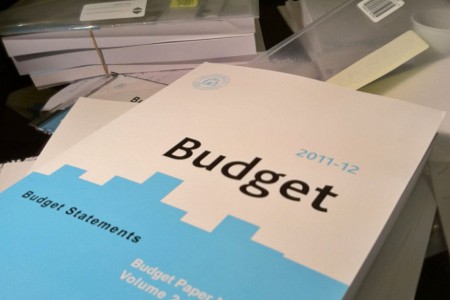
May 20 2011
Australia unveiled its new annual budget last week with the backdrop of a soaring currency and rising prices. Of longer term importance for the Islamic finance market is the submission of the final report that goes to the Board of Taxation this week, one of the aims of which is to help create ‘a level playing field’ for Islamic finance from a tax perspective. The Board will then submit the report to the Treasurer and the race can begin. The Australian government has long paid lip service to accommodating Islamic finance and many feel that the first real steps can only take place once the new tax initiatives are in place.
So what developments in Islamic finance can Australia expect to see? Dr Ishaq Bhatti, director, Masters of Islamic Banking and Finance, La Trobe University, told The Islamic Globe: “The tax changes won’t benefit the retail market at all – they will only benefit the wholesale space,” and, he added, “I don’t expect much”.
John Masters, director of ING Bank, as well as being one of the original architects of the government’s approach to Islamic finance, agrees that this is not about retail finance at all: “This is a wholesale play and a real cross border opportunity to tap into savings in the Gulf and Asia,” he commented.
According to Masters if the assistant treasurer adopts all the recommendations of the Board of Taxation then it will “send a message to the big end of town that says ‘you should get serious about Islamic finance’,’’ but the changes should be seen as a catalyst that will lead to more significant developments. “With this signal the big banks will increasingly start to put their toes in the water…and the development part might open up to some new products,” claims Masters.
But will the Australian banking market, dominated by the Big Four banks, be ready for the challenge? According to Bhatti they won’t as there is too big a skills gap: “The banks don’t have any expertise in this area and they don’t have the people to spot the opportunities.”
The government has been vocally proclaiming that its intention is to secure a ‘level playing field’ for Islamic finance development: in other words developing an infrastructure that does not penalise Shari’ah compliant institutions or products in any way. But there are some, Bhatti included, who question this endgame. “Creating a level playing field is simply not enough since there are other jurisdictions in the region that are doing much more. It won’t help,” says Bhatti.
But not all views are so pessimistic. Chaaban Omran, CEO of Crescent Investments Australasia, told The Islamic Globe: “My personal view is that we should work towards a sovereign Sukuk. The government should, in conjunction with other institutions, produce Australia’s first Sukuk.” Omran believes than an onshore Ijarah Sukuk denominated in Australian dollars worth A$1bn ($1.08bn) and lead managed by a syndicate of the leading Australian domestic banks would set the right tone in kick-starting the Islamic finance market in Australia. “You would get a lot of interest in such an issue from the GCC and the Asia Pacific region,” he said.
Akhtar Kalam, chairman of the Muslim Community Co-Operative Australia, is another optimist and he told The Islamic Globe: “The sky is the limit for Islamic finance. There is plenty of opportunity for Australia with over 160 infrastructure projects which are in advanced stages but are facing delays due to shortages of funds. The shortage is over $700bn.” Kalam feels that the majority of these projects could be financed through the petrodollar liquidity that exists in the Middle East by issuing Sukuk. He added: “The UK has done it and now it is time for Australia to amend its taxations laws to attract this liquidity.”
The conclusion seems to be that the putative forthcoming tax changes are necessary for Australia to make significant inroads into becoming a serious Islamic finance player and that the only real opportunity is at the wholesale investment banking level. Whether the government’s signal to “the Big End of Town” to get active in attracting Shari’ah compliant funds will pay dividends might rest on the skills levels of the entrenched Big Four banks and whether or not they have a deep enough talent pool to design, structure and sell Shari’ah compliant product to investors in the Gulf and Asia Pacific.




